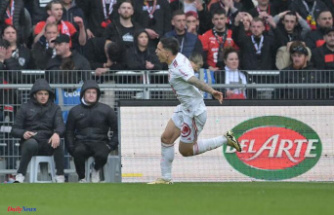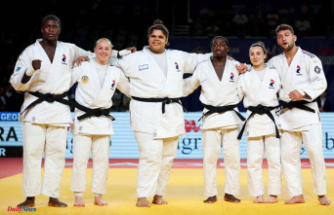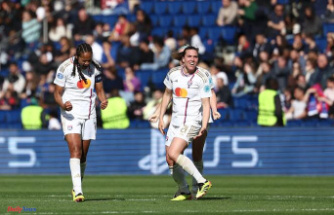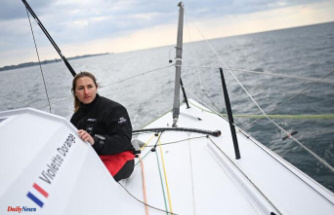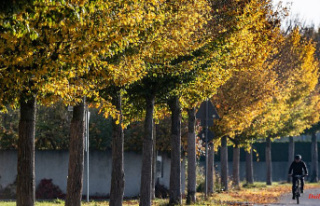The International Ski Federation decides on Saturday whether Russian athletes will return to the World Cup. If yes, several athletes are threatening a World Cup boycott. The Russian cross-country boss warns that if the boycott continues, there will be a massive loss in quality.
A World Cup boycott by the stars from Scandinavia? Jelena Wjälbe can only smile wearily at this threat. "So what, leave her alone," says the President of the Russian Cross-Country Skiing Federation, looking forward to Saturday, when the International Ski Federation FIS will have to make a groundbreaking decision. "Without us, the competition loses its spectacle - without you, nothing changes," said the 14-time world champion to the Russian medium Sport24.
Wjälbe is not entirely wrong: If the FIS Council excludes athletes from Russia and Belarus for the coming winter at meetings at the weekend, there is a risk of a considerable loss of class, especially in cross-country skiing. Natalia Nepryaeva, for example, won the overall World Cup and the Tour de Ski last season, and Alexander Bolschunov came second in both men's races.
Lately there have been signs that the FIS is opening the door to Russians and Belarusians in its sports - in addition to cross-country skiing, alpine skiing, ski jumping, Nordic combined, freestyle skiing and snowboarding. In the official documents for the coming season, for example, both nations are listed with starting places. However, these lists are only "provisional", emphasized the FIS.
Still, the reaction was violent. Above all in Norway and Sweden - at least in cross-country skiing, Russia's big rivals - athletes mobilized against approval. In view of the war, it would feel "strange" to compete against Russian women, said Ragnhild Haga, Norwegian double Olympic champion from 2018. Like Maja Dahlqvist and Linn Svahn before, Haga threatened a boycott of the World Championships in Planica (21. February to March 5).
A possible return is also viewed critically in Germany. "In the previous voting rounds, the DSV has always positioned itself clearly and fully supports the IBU's decision to ban Russian and Belarusian teams from participating in international competitions. We will also represent this position at the FIS Council meeting," said DSV President Franz Steinle at the request of the sports information service. In biathlon, the IBU has already decided to extend the suspension.
However, the FIS would oppose the International Olympic Committee if it were allowed to start. "The recommendations of the IOC to the international associations are unchanged," said a spokesman on request. In other words, going it alone, such as that recently undertaken by the controversial world boxing association IBA, would be met with little approval.
However, this attitude could weaken. At the current meeting of all National Olympic Committees (ANOC), IOC President Thomas Bach in South Korea made contradictory statements. The sanctions "must and will remain," said Bach, but also emphasized that the war did not start with Russian athletes or the Russian Olympic Committee.
So would participation under a neutral flag, such as in tennis or cycling, be conceivable? FIS General Secretary Michel Vion recently caused a stir with statements that corresponding ideas would be discussed at the IOC. But Vion also emphasized that the FIS would make decisions "only on the recommendation of the IOC". The FIS will not be able to please everyone involved anyway, the tension between sport and politics is too great for that. The trenches are deep now.


